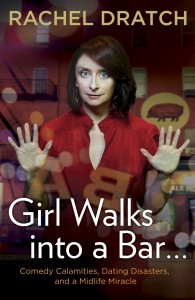Complicated Thoughts on Boston
Written by Ashley Kelmore, Posted in Politics
After the events of last week I was reading through Twitter and saw an old classmate of mine posting about it. We ended up having a somewhat heated exchange after I interpreted a tweet of his as a suggesting that the Boston ‘man hunt’ was motivated primarily by American blood lust. Instead of asking for clarification or perhaps an article he could link to that matched his thinking, I somewhat flippantly said that the search for the Boston suspects may have just been motivated by people not wanting to get blown up anymore.
That was not the best response to his tweets. It would have been much better if I’d asked him to tell me how he thinks Boston should have been handled. Was he suggesting that the pictures of the suspects should not have been made public? Was he suggesting that this was acceptable because the U.S. government has employed explosives in other countries? Or was he saying that we should not be upset when those same countries come after our military, because those situations are similar to Boston? Even with a few qualifying tweets from him I still am not clear on what his overall thesis is, and I don’t feel like Twitter is the best place for that discussion anyway.
So, why am I sharing this? Well, in addition to it being a great reminder of how (not) to interact with others on Twitter, that exchange also got my mind going to a more philosophical place than it was the week of April 15. Between the Boston marathon bombings and the West Texas explosion, my brain was mostly focused on the emergency management response. An unfortunate side affect of my work is that instead of viewing these incidents ‘as a human’, as one kind co-worker said, I ended up viewing them as an emergency manager. How quickly were patients distributed to hospitals? Did they set up a reception center for family members who couldn’t find them? Did they have a phone number for the public? What were they telling them? And who was providing that information?
But now that I’ve had some time to reflect and read some of the articles out there, I am becoming more aware of my own thoughts about the incident itself and what it says (or maybe doesn’t say) about our society and what we value. I am interested in how we make our decisions about what is unacceptable (a bomb that kills three people) and what is a seen as a legitimate cost of living in our society (assault weapons being available). If someone kills three people and injures 200 more, the city is shut down and people are calling for the arrested suspect to be treated as an ‘enemy combatant’ and denied rights, and holding them up as a reason why we should not allow immigration to this country (or something – sometimes it’s hard to follow the ‘logic’ of people like Lindsey Graham). Meanwhile, if someone kills 27 people (including 20 small children), he’s just ‘mentally ill’, and there should be no action taken at all to try to prevent someone’s ability to replicate that act.
How can we rationalize the willingness to lock down neighborhoods in an attempt to stop someone who has killed three people while simultaneously suggesting that it’s too invasive to require background checks before people can purchase guns? To me it seems ideologically inconsistent. And meanwhile, the West explosion in Texas killed 14 people and may have been caused by lack of regulatory inspection and corporate negligence, but there’s been no manhunt for the owner of that facility, no calls to properly fund the government oversight organizations that could best regularly inspect such facilities.
When I was in school in London one of our areas of study was perceived versus actual risk, and to me that seems to be pretty clearly in play with these issues. For example, people fear flying even though statistically they are more likely to die in a car crash than an aviation accident. When someone dies at a train crossing, people clamor for more barriers no matter the cost, even though few people are dying that way. And yet, when precautions that could save literally tens of thousands of lives are suggested, people shy away from them. It’s also interesting to think about how we view lives close to us (whether in our towns or country, or if they look like us) versus lives across the ocean. Peter Singer wrote about this extensively in “The Life You Can Save”; I highly recommend it.
Many people wiser than me have written much more interesting articles about this issue. I’m going to keep reading their articles and really thinking about what happened last week – the bombings, the West explosion, the gun vote and the suspect detention. If you have any further interest, below are some articles I found really interesting.
Rania Khalek: http://raniakhalek.com/2013/04/20/james-holmes-adam-lanza-dzhokhar-tsarnaev-and-double-standards/
Glen Greewald: http://www.guardian.co.uk/commentisfree/2013/apr/22/boston-marathon-terrorism-aurora-sandy-hook
Michael Cohen: http://m.guardiannews.com/commentisfree/2013/apr/21/boston-marathon-bombs-us-gun-law

